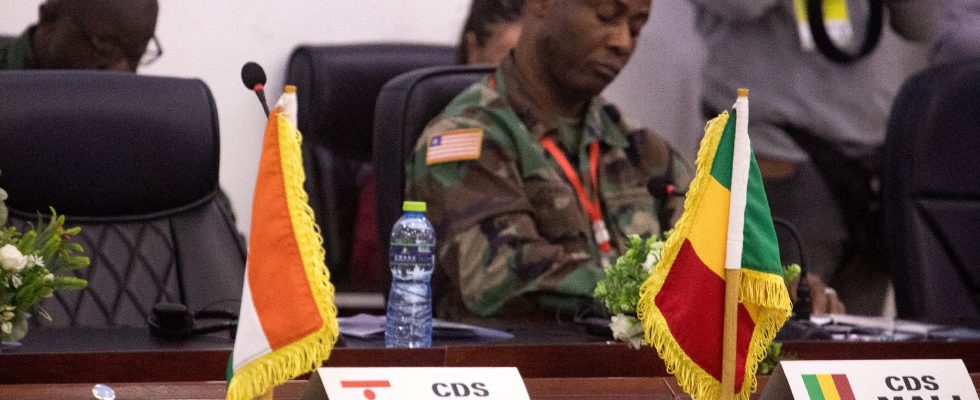It’s a long-awaited official press release… and it’s still waiting. The Peace and Security Council (PSC), the body responsible for conflict and security issues within the African Union (AU), met on Monday 14 August in Addis Ababa, Ethiopia. On the menu of this meeting: a discussion on “the evolution of the situation in Niger and the efforts to remedy it”, after the coup d’etat of July 26 which overthrew President Mohamed Bazoum. The discussions were “difficult”, reports RFI. “Tense” and “endless”, according to several diplomats interviewed by The world. Five days after the meeting of this body made up of fifteen countries taking its decisions by consensus, and not by vote, it is still radio silence.
As RFI notes, a draft final communiqué supposed to indicate the position of the African Union on the sanctions of the Community of West African States (ECOWAS) was submitted on Thursday, August 17 to the members of the PSC, with an obligation for the latter not to reveal its content pending its validation. The presidency of this body, currently held by Burundi, wanted to continue discussions with the member states of ECOWAS on the measures to be taken in the face of the putschists in Niger.
Algeria, Cape Verde… These States opposed to a military intervention
If the final communiqué is late in being published, it is because the members of the AU are divided on the strategy to adopt. According to an African diplomat who took part in the meeting, interviewed by RFI, the countries of southern Africa and North Africa were resistant to the idea of any military intervention.
Several countries have already publicly indicated their rejection of the military option. Algeria has thus already affirmed, through the voice of its president Abdelmadjid Tebboune, that it “categorically” refused this option, worried about the risk of “a conflagration” of “the entire Sahel” in the event of armed intervention.
Cape Verde is also openly opposed. “We must all work for the restoration of constitutional order in Niger, but in no case through military intervention or armed conflict at this time,” said its president, José Maria Neves, last week. The military regimes of Mali and Burkina Faso, neighbors of Niger and members under ECOWAS sanctions, have clearly displayed their solidarity with Niamey. If the hypothesis of a military intervention has been rejected by members of the CPS, certain States such as Gambia, Senegal, Ghana and Nigeria, on the other hand, defend the idea.
Prior AU approval required
By rejecting the use of force against the Nigerien junta, the position of the African Union dissociates itself from that of ECOWAS which, even if it continues to favor “dialogue”, ordered on August 10 “the activation of its standby force” in order to restore constitutional order in Niger, without revealing the modalities or the timetable.
Launching a military offensive rejected by the AU “would be an unprecedented contradiction”, explains to of the world Paul-Simon Handy, researcher at the Institute for Security Studies. Indeed, “ECOWAS will find it difficult to use force without the approval of the AU”.
As the daily reminds us, the decision of the AU is all the more surprising as it goes against its tradition, which consists in aligning itself with the positions of regional organisations. It also contradicts the chairman of the AU commission, the Chadian Moussa Faki Mahamat, who had affirmed “his firm support for the decisions of ECOWAS”, in a press release dated August 11.
“We are ready to intervene”
In this context, diplomacy continues to be favored. A “possible” diplomatic mission could go to Niger this Saturday, August 19 to try to find a peaceful solution to the crisis that is shaking the country. This possible ECOWAS mission aims to “continue to follow the peaceful path to restore constitutional order”, according to the commissioner for political affairs, peace and security of the regional organization, Abdel-Fatau Musah.
“We are ready to solve the problem peacefully, but it takes two to tango,” he said. However, “we are not going to be the ones knocking on the door when they slam it in our face,” he added. Previous ECOWAS delegations have so far failed to meet General Abdourahamane Tiani, Niger’s new strongman.
